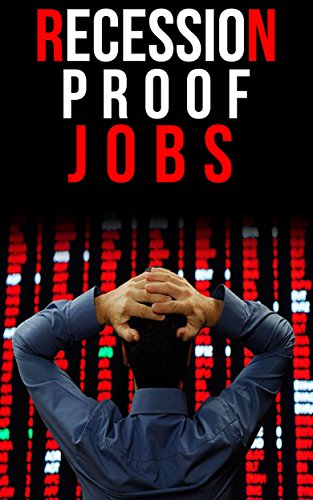Sometimes, the economy is booming. Businesses have enough funds to operate optimally. People are paid well. Everyone is happy.
Other times, however, the economy sinks. Recessions usually follow those economic booms and, despite how aware of their impending doom we might be (because history too often repeats itself), they always hurt. Many people lose their jobs or, at best, their employers cut their hours.
That’s why it’s good to have a job that’s essential to society — one that’s basically recession-proof. Here are the best jobs to have during a recession, as well as the worst.
What are the most recession-proof jobs?
Here are 17 jobs that are likely to withstand a recession.
1. Nurse
Without nurses, no one would survive — let alone survive in recessions, when stress levels heighten and, therefore, people fall ill.
2. Physician
Like nurses, physicians are always needed, especially during tough times. The reality is that people get sick, regardless of how the economy is.
3. Paramedic
Paramedics fall into the same boat as nurses and physicians. There will always be a need for them, no matter what happens to the economy. Emergencies happen.
4. Pharmacist
Pharmacists are perhaps even more valuable during recessions when many people turn to medications to cope with the anxiety and depression that sometimes ensues. Pharmacists, recession or no recession, will always be needed.
5. Veterinarian
Like people, animals fall ill regardless of where the economy stands. Veterinarians are always in demand.
6. Physical Therapists
While physical therapy can cost people a pretty penny that may not have during a recession, it’s necessary for a lot of people. There will always be patients who rely on physical therapy to heal and function — many of whom use physical therapy in order to handle day-to-day tasks. Without physical therapists, there would be way more struggle during recessions than empty bank accounts.
7. Psychologists
Recessions can cause a lot of anxiety and, sometimes, they can lead people into depression. Therefore, psychologists are valuable professionals to whom people can turn during tough times.
8. Elderly Caretakers
There will always be a need for caretakers, especially for the elderly who rely on their caretakers to get through their day to day.
9. Occupational Therapists
Occupational therapists treat patients who have injuries, illnesses or disabilities through the therapeutic use of everyday activities. Their patients rely on them to develop, recover, improve upon and maintain the skills needed for everyday life. Therefore, no recession will knock them out of work.
10. Police Officers
Law enforcement officers are always valued. Regardless of what happens with the economy, people need to be protected and laws need to be enforced.
11. Firefighters
If there’s a fire or another emergency of some kind, we need trained professionals to handle these situations. Whether the economy is booming or in a recession, firefighters will always be needed.
12. Public Utility Specialists
Public utility specialists like electricians and waste removal professionals are always going to have jobs to do. People and businesses alike will always need their work because we’ll always need electricity and we’ll always inevitably create waste.
13. Teachers
The economy might be plummeting, but to ensure that the future looks brighter, teachers are necessary.
14. Professors
Like teachers, professors help promise a better tomorrow! They will always be in need — and their efforts to educate the leaders of tomorrow are perhaps better recognized during tough times.
15. Accountants
Accountants handle money, and recessions are times when people need help with their money the most.
16. Claims Adjusters
Claims adjusters investigate insurance claims to figure out the extent of the insuring company’s liability. Because people will always have insurance — as many insurances are required by law — so claims adjusters will always be needed.
17. Insurance Underwriters
Insurance underwriters evaluate the risks involved in insuring people and assets. Their analysis skills are always needed — especially during times when people want to mitigate risks.
Click here for the original article.




